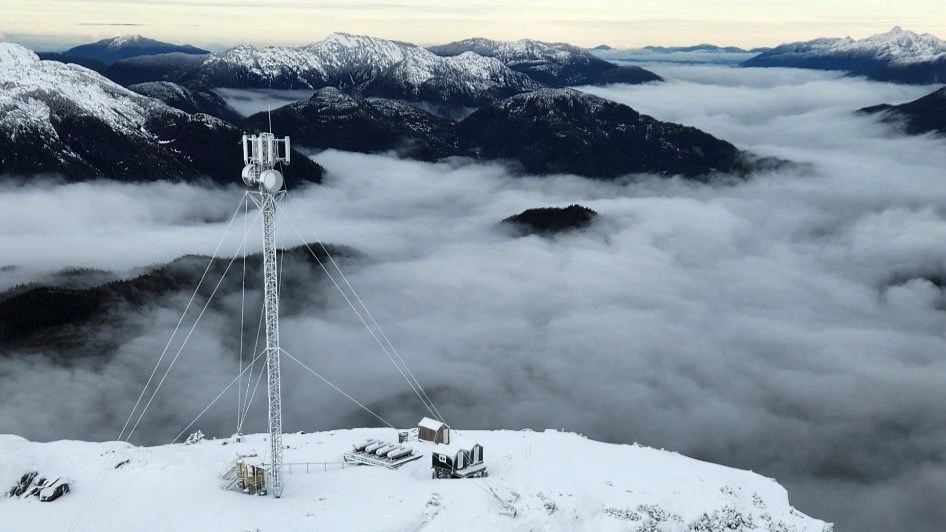Travellers heading west on Highway 16 from Prince George to Prince Rupert will notice a marked improvement in cellphone service now that Rogers Communications has flipped the switch on five new cellular towers.
The new towers were powered up on Monday to connect to the cellular network, providing 5G wireless coverage on what is known as the Highway of Tears.
They're part of an 11-tower, 252-kilometre project for that stretch of Highway 16 planned by Rogers.
“With nine towers in-service, we are proud to provide 166 kilometres of 5G cellular coverage on Highway 16, closing most of the wireless gap between Prince Rupert and Prince George,” said Mark Kennedy, chief technology officer for Rogers Communications. “We are honoured to work with Indigenous communities and government partners on this generational project to increase safety and improve connectivity in the region for residents and travellers.”
The new Rogers towers will give all cellphone users, regardless of which carrier they subscribe to, a connection to 911 emergency services.
The remaining gaps on the 720-km corridor are from Seeley Lake (south of Hazelton) to Kitwanga, and between Terrace and Prince Rupert from Mt. Jackman to Mt. Skip.
The Highway of Tears is the name given to the Highway 16 corridor from Prince George to Prince Rupert where dozens of mostly Indigenous women have gone missing or have been murdered. The highway connects communities where poverty and the lack of public transportation lead to women hitchhiking and getting picked up by strangers to get to where they want to travel. Having better cellular coverage is expected to help reduce that danger.
“In 2006, the Highway of Tears Governing Body dreamed of having a communication network between Prince Rupert and Prince George, our vision was simply to build telephone booths along the corridor! We never envisioned that 18 years later, we would be celebrating the substantial completion of the project to provide cell coverage along Highway 16,” said Mary Teegee, executive director of Carrier Sekani Family Services in Prince George and a Murdered and Missing Indigenous Women and Girls activist.
“These are more than just cell towers, they are lifelines for the north. I commend Rogers for lighting the way for other corporations to follow along the path to reconciliation.”
The cell tower project is part of the province’s ongoing push to expand wireless service in rural communities, a joint partnership with the Connecting British Columbia program administered by Northern Development Initiative Trust and the federal Universal Broadband Fund.
Rogers says it remains committed to expanding services to underserved rural, remote, and Indigenous communities in B.C. and the rest of Canada and the company has invested more than $40 billion in its networks over the past decade, with $4 billion more in capital investments coming this year.



